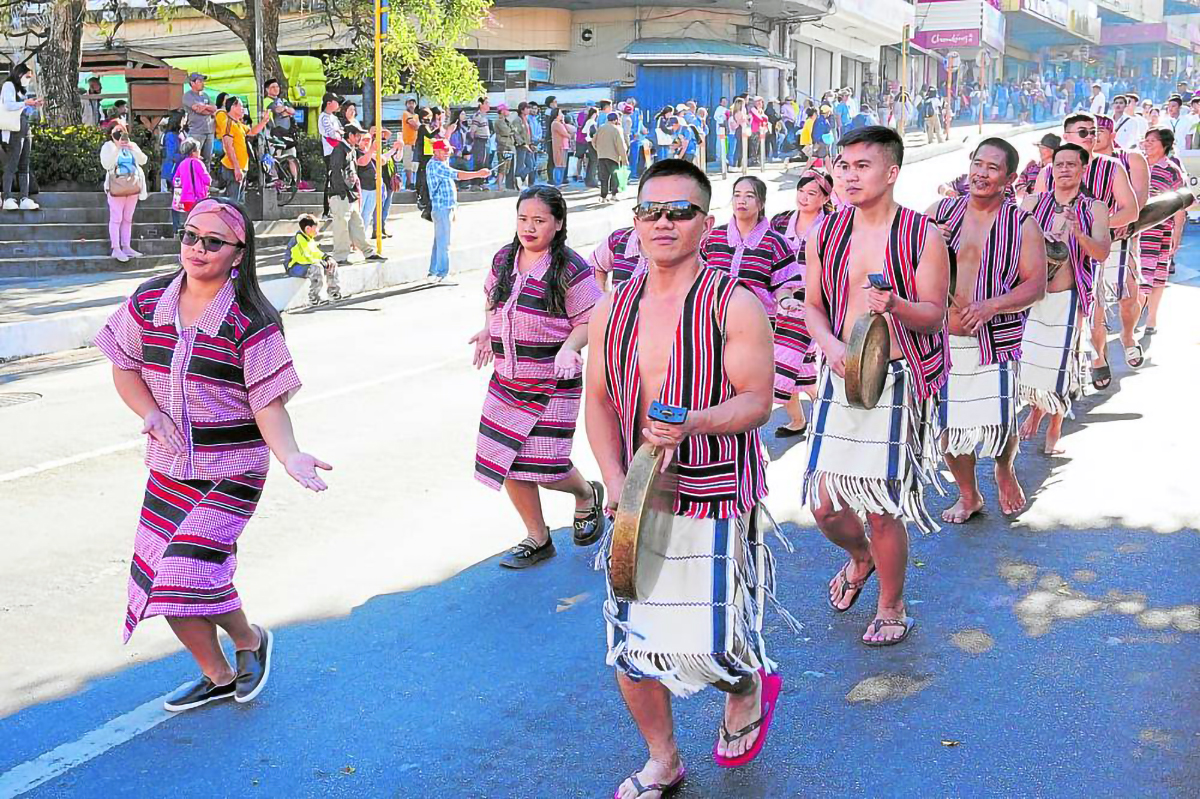
ORIGINAL SETTLERS Baguio Ibaloys are descendants of the city’s original settlers. Shown here during the Ibaloy Day parade on Feb. 23, members of the city’s indigenous peoples groups are facing the possibility that their land rights will no longer be honored because of several Supreme Court decisions. —Neil Clark Ongchangco
BAGUIO CITY, Philippines — Heeding a series of Supreme Court rulings, the National Commission on Indigenous Peoples (NCIP) had suspended all actions that would legitimize the ancestral land rights of Baguio Ibaloys, drawing anger from the city’s indigenous Filipino residents.
The processing of all ancestral land claims in the city was frozen by NCIP on April 8, citing the high court’s conclusion that the law granting Certificate of Ancestral Land Title (CALT) and Certificate of Ancestral Domain Title to the country’s indigenous peoples (IPs) does not include the Baguio townsite reservation because it is governed by its own charter.
Resolution No. 2024-09 issued by the NCIP sitting en banc outlined the agency’s interpretation of at least three SC rulings that cite Section 78 of Republic Act No. 8471 (1997 Indigenous Peoples’ Rights Act, or Ipra) when it invalidated several CALT issued by NCIP.
READ: Ancestral land titles in Baguio forest voided
Section 78 states that “the City of Baguio shall remain to be governed by its Charter, and all lands proclaimed as part of its townsite reservation shall remain as such until otherwise reclassified by appropriate legislation.”
The NCIP resolution was meant as a guideline for the agency’s Baguio office with regard to delineating and titling ancestral lands which the high court disallowed in its Sept. 25, 2019, decision penned by then Acting Chief Justice Antonio Carpio, and the April 26, 2023, and July 11, 2023, rulings penned by Senior Associate Justice Marvic Leonen.
Categorical
The rulings were “very categorical” about Baguio’s exclusion from Ipra, according to lawyer Brain Masweng, NCIP legal officer, during the June 3 session of the city council.
Last year’s July 11 decision stated: “The [Ipra] exempts Baguio City from its coverage. The text of Section 78 is categorical that Baguio City is governed by its own charter. Thus, no ancestral title under the [Ipra] may be issued in favor of claimants within Baguio City.”
In the SC’s April 26, 2023, ruling, it said: “This Court emphasizes that Section 78 clearly and conclusively provides that the charter of Baguio City shall govern the determination of land rights within Baguio City and not the Indigenous Peoples’ Rights Act, despite its enactment.”
However, Masweng said he would ask the commission to review and refine its April 8 resolution, following strong objections from council members.
Councilor Peter Fianza, an Ibaloy lawyer, said the NCIP document implied that Baguio Ibaloys could no longer be protected by Ipra.
Despite Section 78, Ibaloys are entitled to other protections guaranteed by RA 8471 and by the 1987 Constitution, he pointed out, among them the NCIP’s obligation to protect the Ibaloys’ right against dispossession.
Councilor Arthur Allad-iw, a former journalist with Cordillera roots, also raised the hypocrisy of Section 78.
“How can Baguio which birthed the Native Title Doctrine not benefit from its protections?” he asked.
Allad-iw was referring to the 1909 ruling of the United States SC which acknowledged the native rights of Ibaloy clan leader Mateo Cariño over what is now Camp John Hay. This landmark decision is the foundation for charter provisions, decrees and laws like Ipra, which assert IP rights.